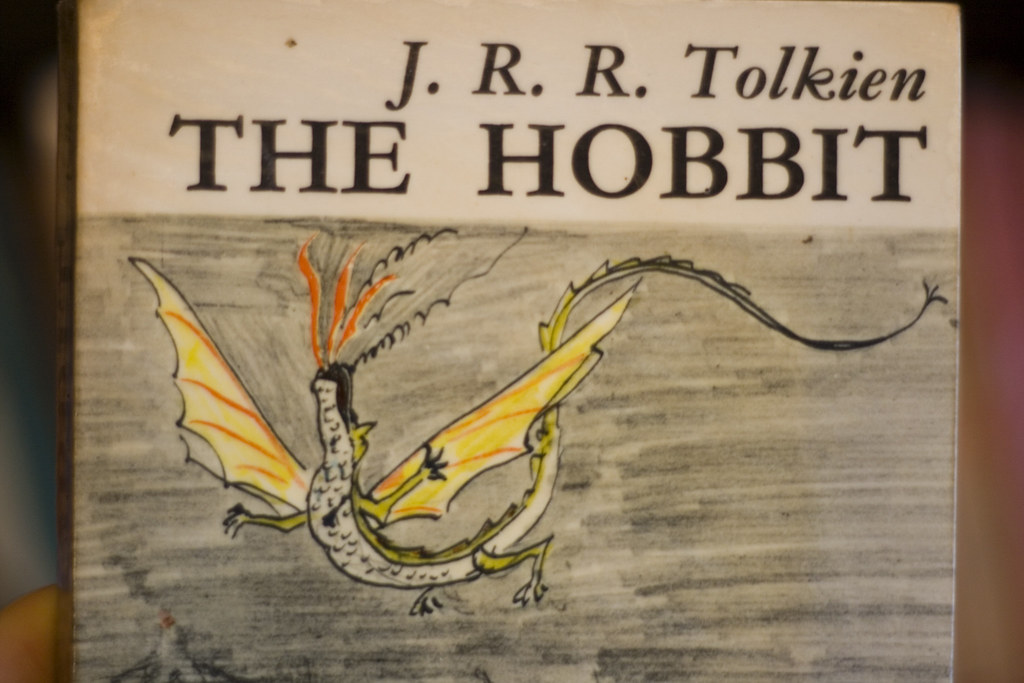Smaug appears in Tolkien's book The Hobbit. He describes it like this (pp. 205-6):
There he lay, a vast red-golden dragon, fast asleep; aAnother of Tolkien's own drawings appears on the cover of the book. (The same edition I owned, by the way).
thrumming came from his jaws and nostrils, and wisps
of smoke, but his fires were low in slumber. Beneath
him, under all his limbs and his huge coiled tail, and
about him on all sides stretching away across the
unseen floors, lay countless piles of precious things,
gold wrought and un-wrought, gems and jewels, and
silver red-stained in the ruddy light.
Smaug lay, with wings folded like an immeasurable bat,
turned partly on one side, so that the hobbit could see
his underparts and his long pale belly crusted with
gems and fragments of gold from his long lying on his
costly bed. Behind him where the walls were nearest
could dimly be seen coats of mail, helms and axes,
swords and spears hanging; and there in rows stood
great jars and vessels filled with a wealth that could
not be guessed.
This is Smaug dying from an arrow that hit a small patch of his breast that was not encrusted with the treasure he had lain on. Beneath him, a village burns.
Thanks to the site smaugthemagnicent for putting up some of these scans.
By the way, The Hobbit is being made into a pair of films and the trailer is available. Unfortunately, Smaug does not appear in the trailer.
Here's another video from the movie's set.


